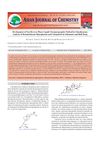
Search
for
Sort by
Research
630-660 / 1000+ results

research Acquired Scalp Alopecia: A Review
Early diagnosis and treatment are crucial for preventing permanent hair loss in various scalp conditions, and while new treatments are promising, more research is needed to evaluate their effectiveness.

research Protective Role of Nutritional Plants Containing Flavonoids in Hair Follicle Disruption: A Review
Some plants with flavonoids may help treat hair loss and promote hair growth.

research Translational Research in the Generation of Therapeutic Medicine for Wound Healing: A Review
New therapies show promise for wound healing, but more research is needed for safe, affordable options.

research The Influence of Menthol in Ethanol Extract of Phyllanthus Niruri Gel as a Hair Growth Promoter in Male Wistar Rats
Menthol boosts the hair growth effects of Phyllanthus niruri gel.

research Tumor Necrosis Factor Inhibitors and Janus Kinase Inhibitors in the Treatment of Cicatricial Alopecia: A Systematic Review
Tofacitinib and adalimumab are promising treatments for cicatricial alopecia with few side effects.

research Prunus Mira Koehne in Sichuan, China: Recorded History as a Medicine and Food, Modern Applications, Distribution, and Ethnobotanical Investigations
Prunus mira Koehne is valuable for hair growth and has potential for sustainable use, but needs more research and conservation.

research Alopecia Areata's Psychological Impact on Quality of Life, Mental Health, and Work Productivity: A Scoping Review
Alopecia areata severely impacts quality of life, mental health, and work productivity.

research Development of Fast Reverse Phase Liquid Chromatographic Method for Simultaneous Analysis of Betamethasone Dipropionate and Calcipotriol in Ointments and Bulk Drug
Researchers developed a quick and reliable method to test for betamethasone dipropionate and calcipotriol in ointments and drugs.

research Time to Loss of Response for Dupilumab in Ophiasis-Pattern Alopecia Areata
Dupilumab helped a woman with severe hair loss regrow her hair quickly and maintain it for six months after stopping treatment.

research Simultaneous Quantification of Dexpanthenol and Resorcinol from Hair Care Formulation Using Liquid Chromatography: Method Development and Validation
Researchers created a reliable method to measure dexpanthenol and resorcinol in hair products.

research Step-By-Step Hair Transplantation Surgery: FUE Method
The document is a guide for practitioners to successfully perform hair transplants using the FUE method.

research The British Society for Rheumatology Guideline for the Management of Systemic Lupus Erythematosus in Adults
The guidelines suggest a detailed approach to diagnosing and treating lupus, with a focus on regular check-ups, personalized medicine, and a range of drug options for different cases.

research Alopecia Areata: An Update
The document concludes that alopecia areata is an autoimmune disease without a definitive cure, but treatments like corticosteroids are commonly used.

research Structure and Function of the Skin
The document concludes that the skin is a complex organ providing protection, sensation, and healing, with challenges in treating conditions like itchiness.

research Literature Review: Hair Growth Cosmeceutical Preparations from Various Nusantara Herbs
A hair tonic made from kale leaves is effective for hair growth and meets Indonesian standards.

research Alopecia Areata in a 45-Year-Old Female with Autoimmune Diseases
A 45-year-old woman with autoimmune diseases experienced patchy hair loss due to alopecia areata, which has no cure but can be treated, with varying success.

research Promotion of Hair Growth by Conditioned Medium from Extracellular Matrix/Stromal Vascular Fraction Gel in C57BL/6 Mice
A substance from a specific gel helped to grow hair effectively in mice, suggesting it could potentially be used to treat hair loss in humans.

research Abstracts
Young HS patients often have other physical and mental health issues, and research on HS covers a wide range of topics including genetics, triggers, treatments, and the need for more data.

research Androgenetic Alopecia: Overview
AGA is a genetic, hormonal hair loss treated with finasteride, minoxidil, and supplements, but new compounds are being developed.

research Features
Pharmacists play a key role in helping patients use over-the-counter products correctly, including those for hair regrowth and smoking cessation.

research Trichodynia: An Update on Definition, Etiopathogenesis, Diagnosis, and Treatment
Trichodynia is a painful scalp condition needing targeted treatments beyond symptom management.

research Connective Tissue Disorders
Different connective tissue disorders have unique symptoms and treatments, with varying outcomes and often require ongoing care from a specialist.

research The Role of Androgen and Androgen Receptor in Skin-Related Disorders
Targeting androgen receptors could be a promising way to treat skin disorders with fewer side effects.

research Epidemiology of Skin Cancer in the Mature Patient
Older adults have a high rate of skin cancers like basal cell carcinoma and melanoma, mainly due to UV exposure and age.

research Acanthosis Nigricans and the Metabolic Syndrome
Acanthosis nigricans is a skin condition that may indicate a higher risk for insulin resistance and type 2 diabetes, and more research is needed to understand and treat it.

research Dapsone Therapy for Pustular Psoriasis: Case Series and Review of the Literature
Dapsone improved pustular psoriasis in patients who didn't respond to other treatments and is considered a well-tolerated option.

research Skin Care During the Menopause Period: Noninvasive Procedures of Beauty Studies
The conclusion is that a combination of noninvasive treatments and lifestyle changes can improve skin health during menopause.

research Punctate Follicular Porokeratosis
Punctate follicular porokeratosis is a skin condition with specific features seen in hair follicles.

research Randomized Split-Side Study Comparing Efficacy of Botulinum Toxin Type A Versus 0.9% Sodium Chloride in Scalp Psoriasis
Botulinum toxin type A significantly reduces scalp psoriasis severity compared to placebo.